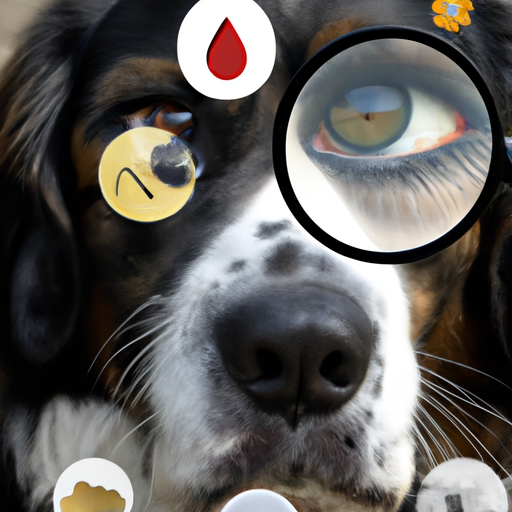As caregivers, you often find yourselves asking, “Why are my dog’s eyes running?” It can be unnerving to witness your canine companion with watery eyes, and your immediate reaction is to seek answers. This guide will delve deep into the various reasons why dogs’ eyes run and provide you with comprehensive information to better understand this common condition.
H2: Understanding Normal Dog Eye Discharge
Just like humans, dogs also produce a certain amount of eye discharge. This is a normal physiological response that helps to keep their eyes clean and lubricated. However, excessive or persistent eye discharge may signal an underlying health problem.
Normal Eye Discharge
In a healthy dog, the eye discharge is usually clear and watery. It might accumulate and harden into a crust around the eyes, especially after sleep. This is similar to the ‘sleep’ we humans get in our eyes.
Abnormal Eye Discharge
Any changes in the color, consistency, or amount of your dog’s eye discharge could indicate a problem. Here are some common types of abnormal eye discharge:
- Yellow-green pus: This could signal an eye infection.
- Thick mucus: This often suggests a blocked tear duct.
- Excessive watering: This is usually a sign of eye irritation or tear duct problems.
H2: Common Causes of Dogs’ Eye Discharge
Several factors can cause your dog’s eyes to produce excessive discharge. Here are the most common ones:
- Allergies: Just like people, dogs can also suffer from allergies which can cause their eyes to water.
- Infections: Bacterial or viral infections can lead to inflammation and increased eye discharge.
- Conjunctivitis: This is inflammation of the conjunctiva, the tissue lining the eyelids, often caused by allergens, irritants, or infections.
- Corneal Ulcers: These are painful sores on the cornea, often caused by trauma, dry eye, or infections.
- Entropion: This is a genetic condition where the eyelid rolls inward, causing the eyelashes to rub against the cornea, leading to irritation and excessive tearing.
- Distichiasis: This is a condition where extra eyelashes grow from the eyelid and rub against the cornea.
- Dry eye: This occurs when the eyes do not produce enough tears, leading to irritation and compensatory excessive tearing.
| Condition | Cause |
|---|---|
| Allergies | Allergens like pollen, dust, etc. |
| Infections | Bacteria or viruses |
| Conjunctivitis | Allergens, irritants, or infections |
| Corneal Ulcers | Trauma, dry eye, or infections |
| Entropion | Genetic |
| Distichiasis | Genetic |
| Dry eye | Inadequate tear production |
H2: When to Seek Veterinary Help
If you notice any of the following symptoms, it’s time to seek veterinary assistance:
- Persistent eye discharge
- Change in color or consistency of the discharge
- Redness or swelling around the eyes
- Your dog is pawing at their eyes or blinking excessively
- Changes in your dog’s behavior such as increased sleep, loss of appetite, or signs of discomfort.
H2: Prevention and Treatment
Preventing the root causes of eye discharge will go a long way in keeping your dog’s eyes healthy. Regular grooming and keeping the hair around the eyes trimmed can help prevent irritants from entering the eyes.
Treatment will depend on the underlying cause. For instance, allergies might be managed with antihistamines, while infections might require antibiotics. In some cases, surgical intervention might be necessary.
H2: Frequently Asked Questions (FAQ)
Q: Can I use human eye drops on my dog?
A: No, human eye drops may contain ingredients that are harmful to dogs. Always consult with your vet before administering any medication.
Q: How can I clean my dog’s eyes at home?
A: Use a clean, damp cloth to gently wipe away any discharge from your dog’s eyes. Do not touch the eye surface directly.
Q: Can diet affect my dog’s eye health?
A: Yes, a balanced diet rich in essential vitamins and minerals can help maintain your dog’s eye health.
Q: How often should I check my dog’s eyes?
A: It’s a good practice to check your dog’s eyes daily for any signs of irritation or abnormal discharge.
Remember, you play a crucial role in your dog’s health. By staying informed and vigilant, you can ensure that your four-legged friend stays happy and healthy. After all, the eyes are the windows to the soul, even for our canine companions.



